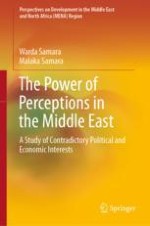This book analyzes conflicting political views and narratives held by different forces, both at the local and regional levels in the Middle East. Based on case studies and analysis of local economic projects, it highlights the often conflicting concepts and visions for economic and social development in the Middle East as espoused by rival political groups and grassroots organizations. The book also discusses the power of perceptions and knowledge production in shifting dynamics of power and changing the social-political dynamics in the Middle East. Furthermore, it provides a case study on the multidimensional problem of the Sykes-Picot Agreement. It will appeal to scholars of Middle Eastern politics and economics as well as political decision-makers and investors, interested in the political and economic development of the Middle East.
